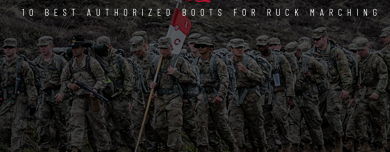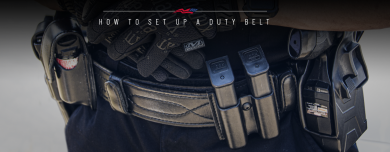
If you are a CCW Permit holder and plan on traveling, it is important you understand the ins and outs of doing so. While you hope that your firearm never leaves the holster and that no one ever knows you have it, you have to be prepared for the worst. Even if you do not use the firearm, you have to consider the possibility it will be discovered some other way- going through a security checkpoint, an observant police officer seeing it, or even being involved in a motor vehicle accident. Knowing the rules will prepare you for what might happen and allow you to avoid otherwise preventable legal problems.
Reciprocity
It is important to know which states will recognize your concealed carry permit. Contrary to what many people believe, CCW Permits are not automatically granted reciprocity in the way that driver licenses or vehicle registrations are.
- Know your home state rules on reciprocity – if your home state does not recognize the permit of the state you are going to, chances are that state will not offer you reciprocity.
- If your state offers reciprocity, then check with the state(s) you will be visiting and confirm which permits they honor – in many cases the State Police can answer this question. If not, check with the Attorney General’s Office. Many states provide this information online.
- Next, check to see what specific rules apply concerning where you can or cannot take your firearms. Government buildings, law enforcement facilities, and schools are almost always off limits. This may also extend to parks and other outdoor recreation areas or businesses that post “No Guns” at entries.
- You must also know if a firearm is considered concealed when transported in a vehicle. Remember, this would apply to every state you travel through, not just those you stop in.
Of course, not every traveler will be driving to their destination. This means it is also important to know the rules that apply to other means of transport including rail, airplane, and bus as well.
Amtrak
Following 9/11, firearms were strictly prohibited on all Amtrak trains. However, this has changed in recent years. You may now transport firearms on Amtrak trains if you adhere to specific regulations.
- All firearms must be transported in your checked luggage, in a locked hard-sided case. Smaller firearms, such as handguns, may be packed in your suitcase, but must still be in a hard side case.
- Ammunition must also be packed in checked baggage AND stored in original manufacturer’s container or a similar package designed for carrying small amounts of ammunition.
- All firearms must be unloaded and transported on the same train as owner.
- You must notify Amtrak no less than 24 hours before departure by calling 800-USA-RAIL.
- You are responsible for complying will all regulations of jurisdiction to and through which you may be traveling.
Airplanes
As with trains, the carrying of any weapons on airplanes was strictly limited following 9/11. Unlike Amtrak, this restriction has not been loosened with the passage of time. Violating firearms regulations when flying is a serious crime and not one which is overlooked, even if it is the result of an honest mistake.
- Restrictions on the carrying of firearms on airplanes begin at the gate – if you are carrying an undeclared firearm DO NOT attempt to board the plane.
- All firearms must be transported in your checked luggage, in a locked, hard-sided case. Smaller firearms, such as handguns, may be packed in your suitcase but must still be in a hard side case.
- Restrictions on firearms also includes ammunition and specific parts of firearms – make sure you check with TSA and your airline prior to attempting to transport ANY firearm-related materials.
- All firearms must be declared when checking baggage. If transfers require you to recheck baggage, this process must be repeated each time.
- If you are transporting firearms internationally, you must comply with regulations of TSA, U.S. Customs, and the destination nation as well.
- You are responsible for complying with all regulations of the destination city or state.
Buses
Yes, people still travel by bus, and it is important to know what is permitted when traveling by bus with a CCW. Each bus company has its own regulations concerning what is permitted on the bus or in checked luggage, so it is important you check with your specific carrier. Here are what some of the major carriers have to say.
- Greyhound – this is a strong NO, even in checked luggage.
- Peter Pan – again, a zero policy for all weapons, including CCW holders.
- Megabus – passengers may not transport any item which is inherently dangerous…. or weapons of any kind.
- Trailways – each network is independently owned so please check with your specific carrier.
- RedCoach – Explosives, firearms, fireworks, and flammable liquids are prohibited.
- BoltBus – terms do not specifically prohibit firearms. However, they do reserve the right to refuse service to several classes of passengers including those “who refuse to permit a search of his or her person and property for weapons.”
- Jefferson Lines – not permitted at all anywhere on the bus or in baggage.
As you can see, traveling by bus while armed is an unlikely option. I was unable to identify any major carriers who advertise anything but a “no weapons” policy. With that being said, I have heard that some carriers will allow hunting firearms in specific and very restricted situations. It is best to check with your carrier prior to making reservations.
On the bright side, the prohibition against firearms is not as strict when it comes to public buses. Although a number of public transportation agencies still have a “No Guns” policy, a growing number of court cases have resulted in widespread change, mainly because many of these organizations are government-operated rather than private property. If you will be traveling by local public transit, even if it is from the airport/train station to hotel, it is important you know and understand the local regulations.
Conclusion
The adage “Have gun will travel” is harder and harder to adhere to. Between government regulations and those permitted by privately owned carriers, it is easier and easier to become caught in the travel gun trap. Do your research ahead of time, prior to making any reservations, and determine which mode of transportation is best for your situation. Even then, you may want to alter your travel route to avoid problem jurisdictions. It is sad that carrying a firearm is the only Constitutional Right that comes with conditions and even restrictions, but that is a battle best fought in the courtroom rather than the airport terminal or train depot.
Disclaimer: The content in this article is the opinion of the writer and does not necessarily reflect the policies or opinions of US Patriot Tactical.






